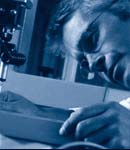|
|
![]() |
![]() |
![]() |
![]() |
![]() |
| Background Systems and New
Technologies that Make Urban Transportation Work |
| |
![]() |
Principal Investigators
MIT:
J.Heywood, D.Roos, R.Gakenheimer
UT: K.Ohta, H.Ieda
ETH:
M.Eberle, A.Wokaun
Mobility is fundamental to our economic
and social vitality, influencing the structure of cities and urban
areas. Increased mobility and economic development have processed in
unison. Automobiles instilled an unprecedented level of personal
mobility, reconfigured urban landscapes, and influenced lifestyles.
In recent years, numerous signs have become visible to
indicate our inability to maintain, let alone improve, mobility.
Increased mobility has also caused serious social concerns, such as
allocations of scarce land resources for transportation
infrastructure, depletion of finite energy resources, and
detrimental environmental and safety impacts. While governments have
responded to these concerns through policy and regulation, their
implementation has not always produced the desired results. Large
public sector initiatives, such as building roads, have seldom
alleviated public concern. Although the need for mobility to
facilitate social and economic well-being are well recognized,
mechanisms to provide that mobility in an efficient, socially
responsible manner have not been articled
sufficiently.
Goals/Objectives
The goal of this
project is to understand what makes actions to improve urban
transportation work in some places and not in others. The research
is based on the knowledge that many of these preconditions are not
attributions of the transport policy itself but are conditions of
economy, financial practice, political management, and institutional
structure of each venue.
Results/Findings
The
research was carried out in three segments as follows:
- Global demand for mobility and its environmental
consequences
- Actions for mobility and sustainability that emphasize new
technologies
- Case studies of cities' experiences with mobility actions and
the relation of those actions to supporting urban
systems.
The project has established a comparative
analysis of technology options for sustainable transportation;
evaluated performance of advanced hybrid vehicles and electric
vehicles; studied the use of fuels from renewable sources in fuel
cell vehicles; and conducted case studies of cities' experience with
mobility actions in both developed and developing countries.
The research has generated two major publications:
- International Mobility Observatory: Exemplary Mobility
Strategies and Systems
- The Venues of Mobility Actions
In addition, four
articles have been published from the Bangkok case
study.
More Information
Website |
|



